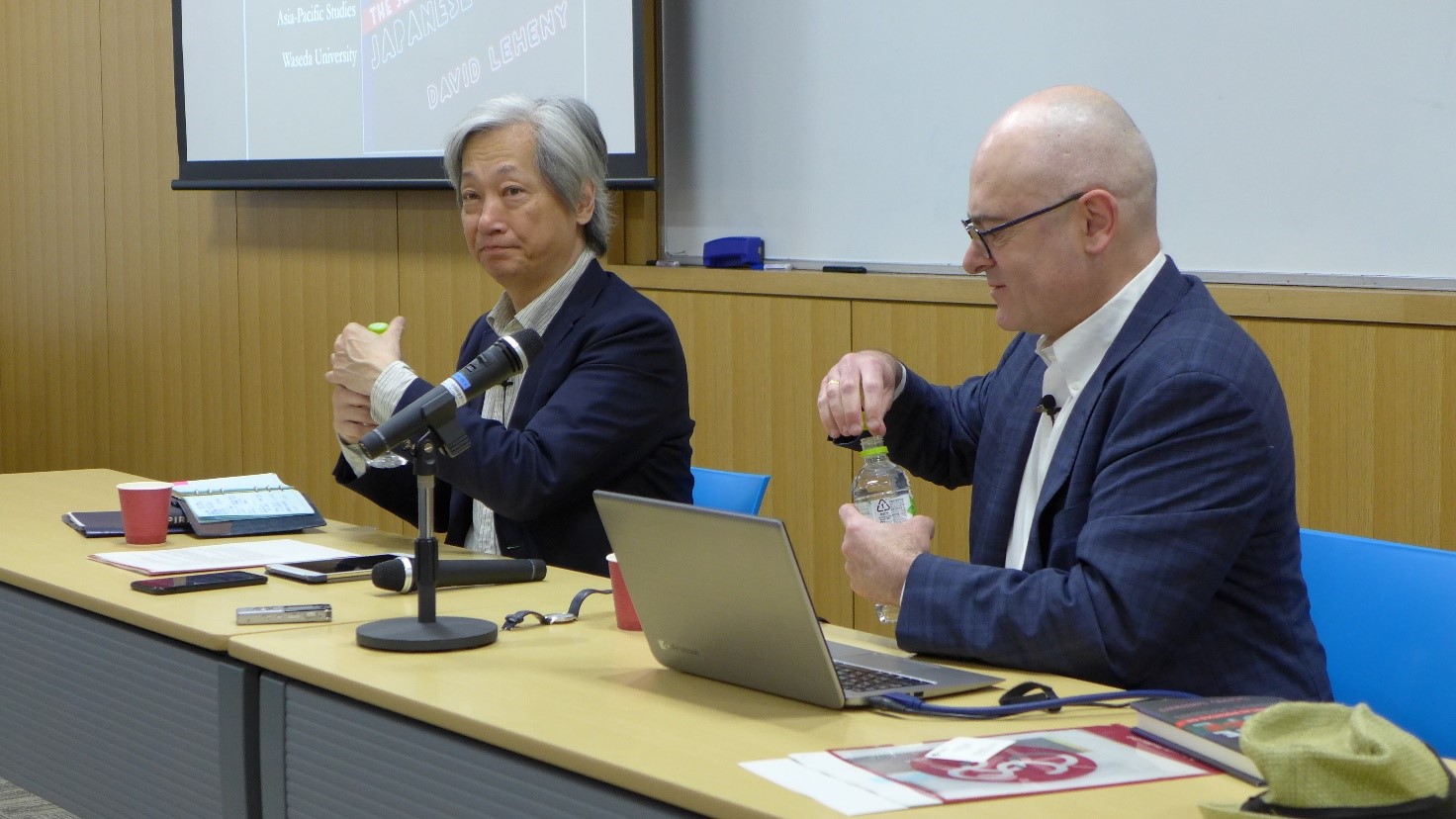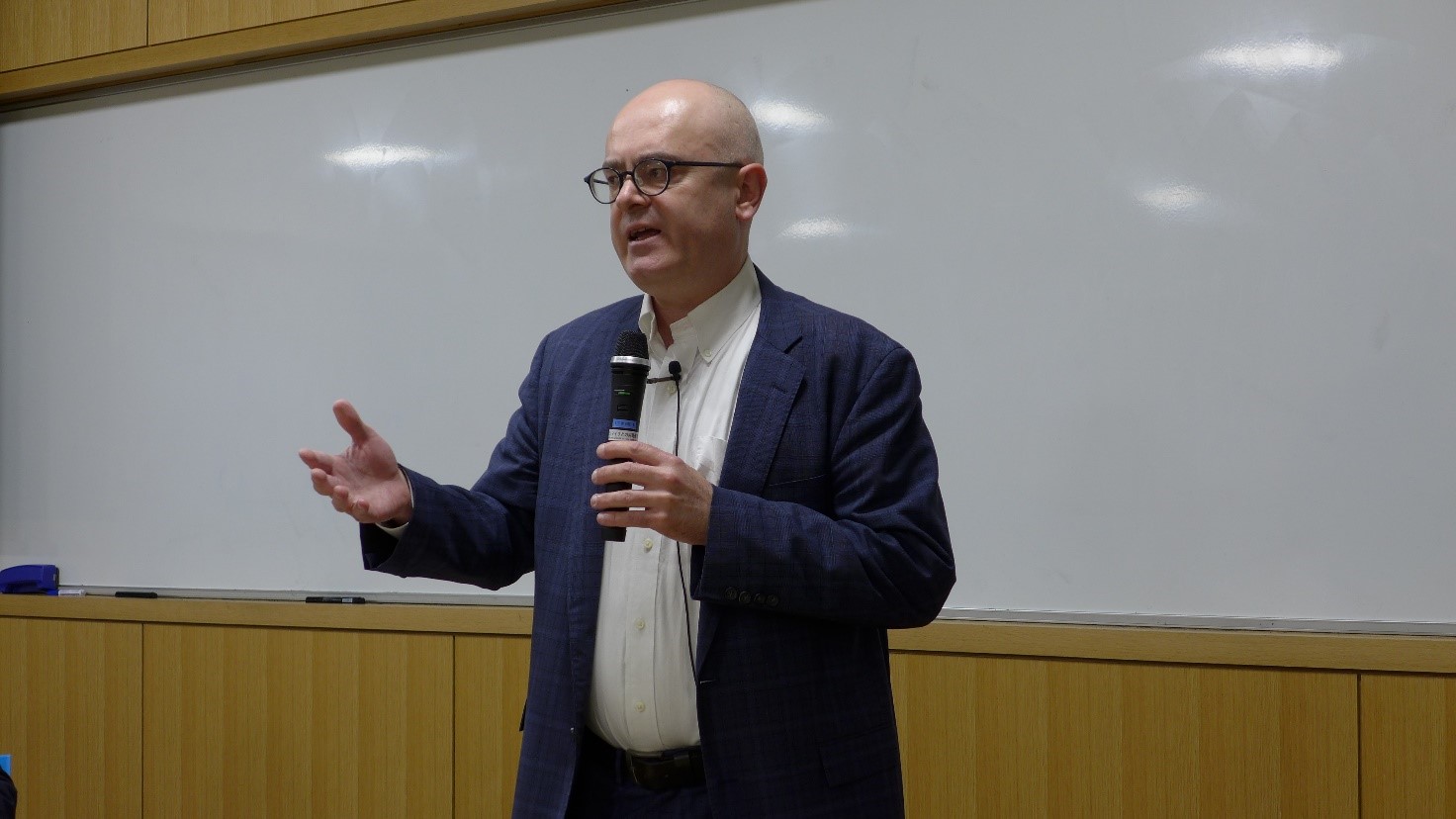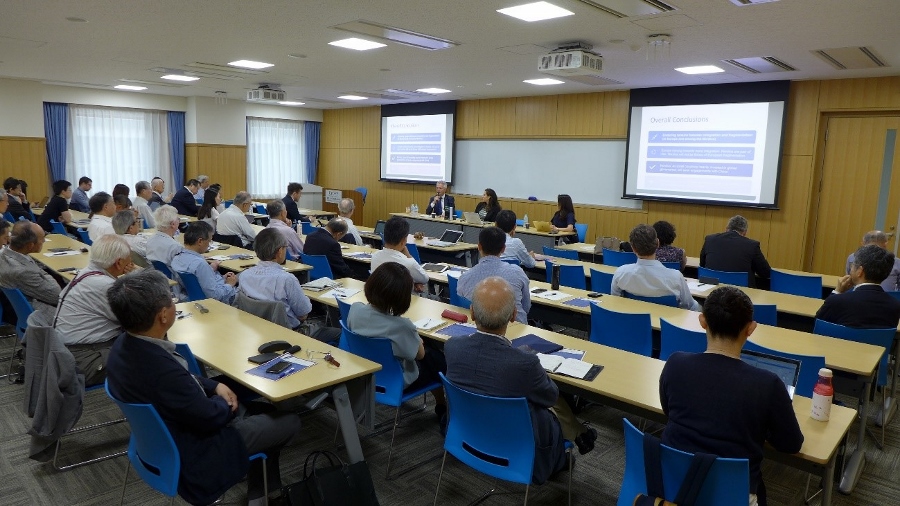SSU Forum/GraSPP Research Seminar with Professor David Leheny (Graduate School of Asia-Pacific Studies, Waseda Universtiy)
- Date:Fri, May 10, 2019
- Time:10:30 - 12:00
- Location:SMBC Academia Hall, 4F International Academic Research Building, the University of Tokyo.
MAP - Subject:
“Empire of Hope:The Sentimental Politics of Japanese Decline”
- Speaker:
Professor David Leheny, Graduate School of Asia-Pacific Studies, Waseda Universtiy
- Language:
English
- Hosts:
Security Studies Unit, Institute for Future Initiatives, the University of Tokyo
GraSPP Research Seminar, the University of Tokyo
The Institute for Future Initiatives and GraSPP Research Seminar collects personal information in order to provide you with information about our current and future activities. Your personal information will not be disclosed to any third party.
In this talk, Leheny will introduce his book Empire of Hope: The Sentimental Politics of Japanese Decline (Cornell University Press, 2018), focusing on case studies illustrating how a national narrative of “the long postwar” has shaped the ways in which emotion can be deployed in Japanese debates about politics, status, and international relations. The book challenges new analyses of emotion and politics more broadly by focusing on the role of narrative in structuring emotional claims that are usually distant from the actual feelings of actors themselves.
The Security Studies Unit of the Institute for Future Initiatives (IFI) in cooperation with the Graduate School of Public Policy was delighted to host a talk delivered by David Leheny, Professor in the Graduate School of Asia-Pacific Studies at Waseda University. The talk, entitled “Empire of Hope. The Sentimental Politics of Japanese Decline”, was intended as a presentation of the homonymous book, which was published in November 2018.

Professor Kiichi Fujiwara, Director of IFI, opened the event by thanking the guest and the public. He introduced Professor Leheny as an outstanding expert of Japanese politics, who has authored several books exploring how Japan shapes and re-shapes its identity in the various phases of post-WWII history. A disciple of Peter Katzenstein at Cornell University, he worked at the University of Tokyo, at the University of Wisconsin-Madison, and at Princeton University, before moving to Waseda.
Professor Leheny thanked the host and recalled the time when he was a young scholar at the Institute of Social Science of the University of Tokyo at the beginning of his career. He then started to illustrate the purpose and the structure of his book, which is centred on the idea of studying the collective emotions of the Japanese nation through a series of stories, which span across the late Showa era and the post-bubble Japan of the Heisei era.
The study of emotions and their connection to politics, Professor Leheny argued, is a complex matter, and a growing literature on the subject has now established itself. Much of this literature, however, is concerned, and perhaps rightly so, with the translation of emotions into some kind of variable which would fit explanatory formats based on behaviouralist models. This would allow to predict how a certain political community may behave as a response to a certain emotional wave. There is another part of the literature which focuses more on the “manufacturing” of collective emotions: when the political authority says “our country feels” in a certain way, what is the logic behind this way of representing the emotions of a collectivity? This is also connected to the literature on narratives, i.e. symbolic representations of the world, which help our orientation in the extremely complex environment of international politics.

The argument of the book is, on the one hand, that the rationality of political processes is always embedded in emotions. On the other hand, emotions shape the boundaries of the political community. In the case of Japan for instance, the long post-WWII transition has been characterised by the narrative of a country which has managed to successfully reconstruct itself in the aftermath of a catastrophic defeat, and by the corresponding emotions of achievement and self-gratification.
Focusing on this, Professor Leheny introduced his Chapter 3, which is centred on the story of Viet-chan and Duc-chan. Viet and Duc were a pair of conjunct twins who were born in this conditions in 1981 as a consequence of the Agent Orange, a chemical substance sprayed by the US armed forces during the Vietnam war, which had, and still has, very detrimental effects on the health of the Vietnamese rural population, particularly concerning birth defects. Viet and Duc were abandoned shortly after birth. As Viet’s health was rapidly deteriorating, a public solidarity campaign started in Japan under the initiative of activists and doctors. The twins were transferred to Japan for treatment, and this story mobilised enormous public attention and emotions. There was guilt for not having managed to stop the Japanese logistical support to the US military in Vietnam, but also the feeling that, while Japan had lost the war with the US and Vietnam had won, Japan had emerged victorious in the reconstruction, while Vietnam remained economically very poor, lacking proper infrastructure and expertise to help a significant part of its own population. The story of Viet and Duc had major political implications. A member of the team escorting the twins to Japan eventually defected to the US, thus partially straining relations with Vietnam. Furthermore, even if the whole initiate was largely due to left-wing activists in Japan, conservative PM Nakasone seized the opportunity to internationally project the image of a Japan caring for other Asian nations, in contrast to the US. The story of Viet and Duc remains extremely well-known in Japan. National media have followed their surgical separation and its aftermath, which has seen the tragedy of Viet’s decline until his death in 2007, while Duc has luckily managed to survive, and has become a key figure in the Japan-Vietnam public relations.

※This forum was organized in connection with the MOFA subsidy projects granted to SSU of IFI.